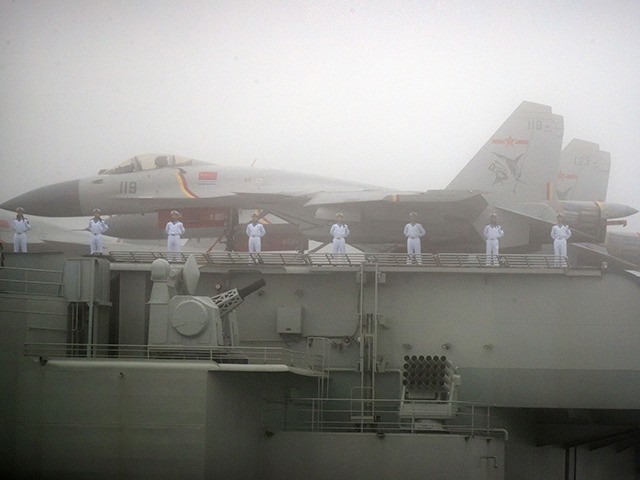The United States Department of State has demanded China stop “exploiting the distraction” caused by the Wuhan coronavirus pandemic to ramp up its “unlawful” colonization of the South China Sea in a statement released on Monday.
“We call on the PRC [People’s Republic of China] to remain focused on supporting international efforts to combat the global pandemic, and to stop exploiting the distraction or vulnerability of other states to expand its unlawful claims in the South China Sea,” urged State Department spokesperson Morgan Ortagus.
A Chinese ship hit and sunk a Vietnamese fishing boat last Thursday near the Paracel Islands, endangering the lives of eight Vietnamese crew members detained by the Chinese on a nearby island. Chinese officials detained two other Vietnamese fishing boats that tried to rescue the detained crew. All were later released. At the time, Vietnam planned to file a formal complaint to authorities for the act of aggression.
This incident was “the latest in a long string of PRC actions to assert unlawful maritime claims and disadvantage its Southeast Asian neighbors in the South China Sea,” the State Department asserted in its statement on Monday.
In late March, China announced the construction of two new “research stations,” or military installations, on Fiery Cross Reef and Subi Reef in the Philippine Sea. The reefs are claimed by the Philippines and others and the Chinese government lost an international case at the Hague on its claims to most of the South China Sea.
In response to China’s March announcement, the U.S. Navy launched live-fire missile tests in waters east of the Philippines, pertaining to the highly contested South China Sea.
Last week, the Pentagon’s Indo-Pacific Command requested $20 billion in funding from Congress to bolster the country’s military operations in the Indo-Pacific region through 2026. The funding would cover more air missile units, new radar warning systems, expanded training exercises, and initiatives to strengthen the military capabilities of U.S. allies.
“Without a valid and convincing conventional deterrent, China and Russia will be emboldened to take action in the region to supplant U.S. interests,” an executive summary of the request stated.
About $1.7 billion of the budget would fund a 360-degree air missile defense system in Guam, a U.S. territory in the western Pacific Ocean. This would upgrade the system, enabling long-range, high-precision missile strikes westward toward China’s claims on the South China Sea.
The South China Sea possesses extensive oil and natural gas resources, and is home to one of the world’s richest trading routes, making it an attractive region to control.
In recent years, China has illegally expanded control in the highly contested body of water, claiming zones that pertain to nearby Southeast Asian nations, or that are traditionally considered international territory.
A 2016 international court ruling deemed China’s maritime claims in the South China Sea unlawful. However, China rejected the ruling and continues to assert power over almost all of the territory.
The U.S. has responded to the growing Chinese threat in the sea with aid for Southeast Asian nations that China has refused to allow to exercise their legal control over their territory. China has responded belligerently to this development. In March, Chinese state media suggested the possibility of using an electromagnetic pulse weapon (EMP) against American ships entering the South China Sea.

COMMENTS
Please let us know if you're having issues with commenting.